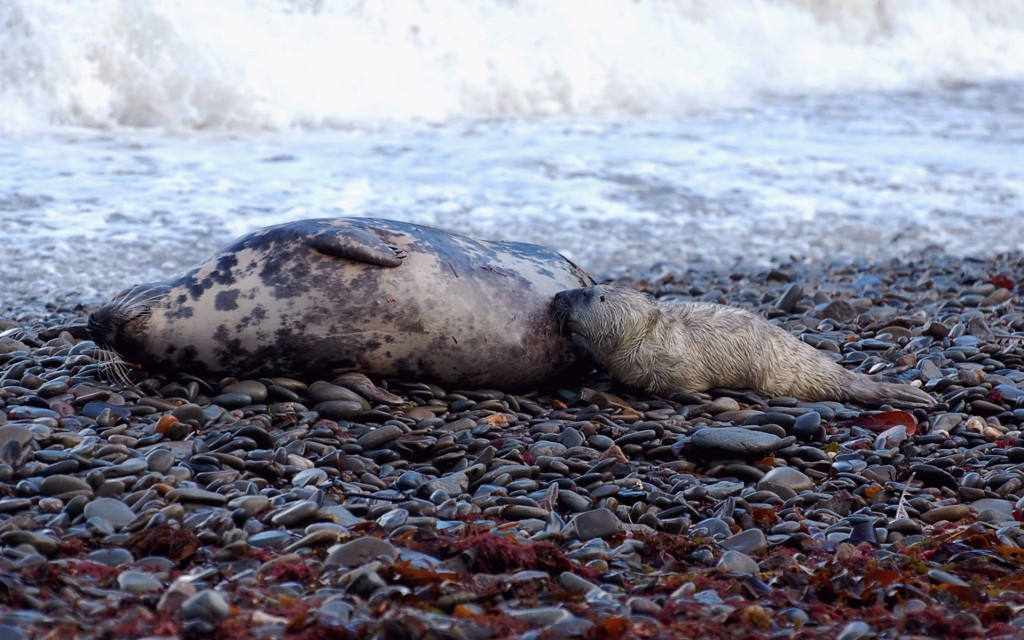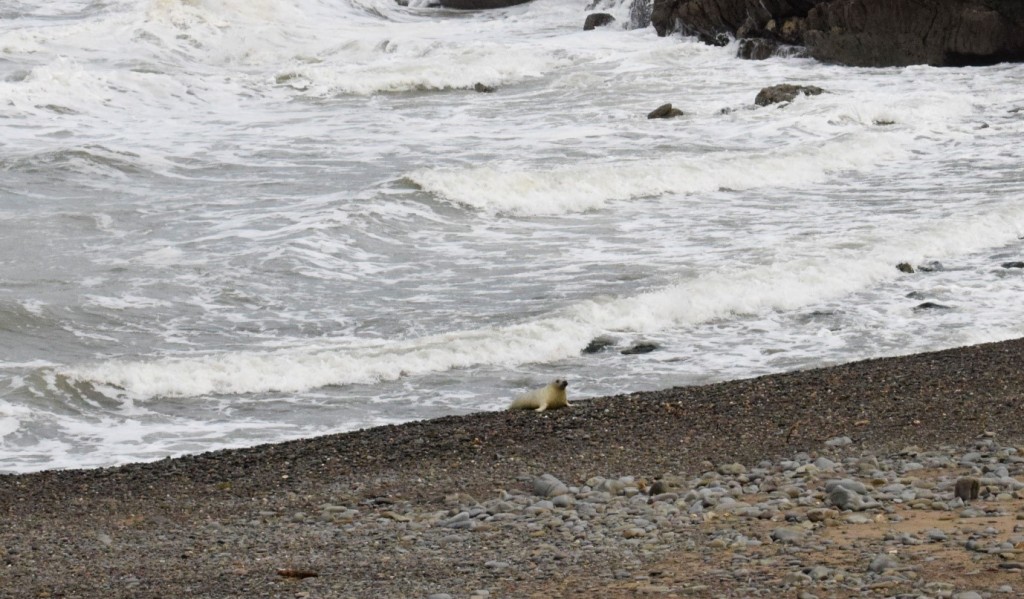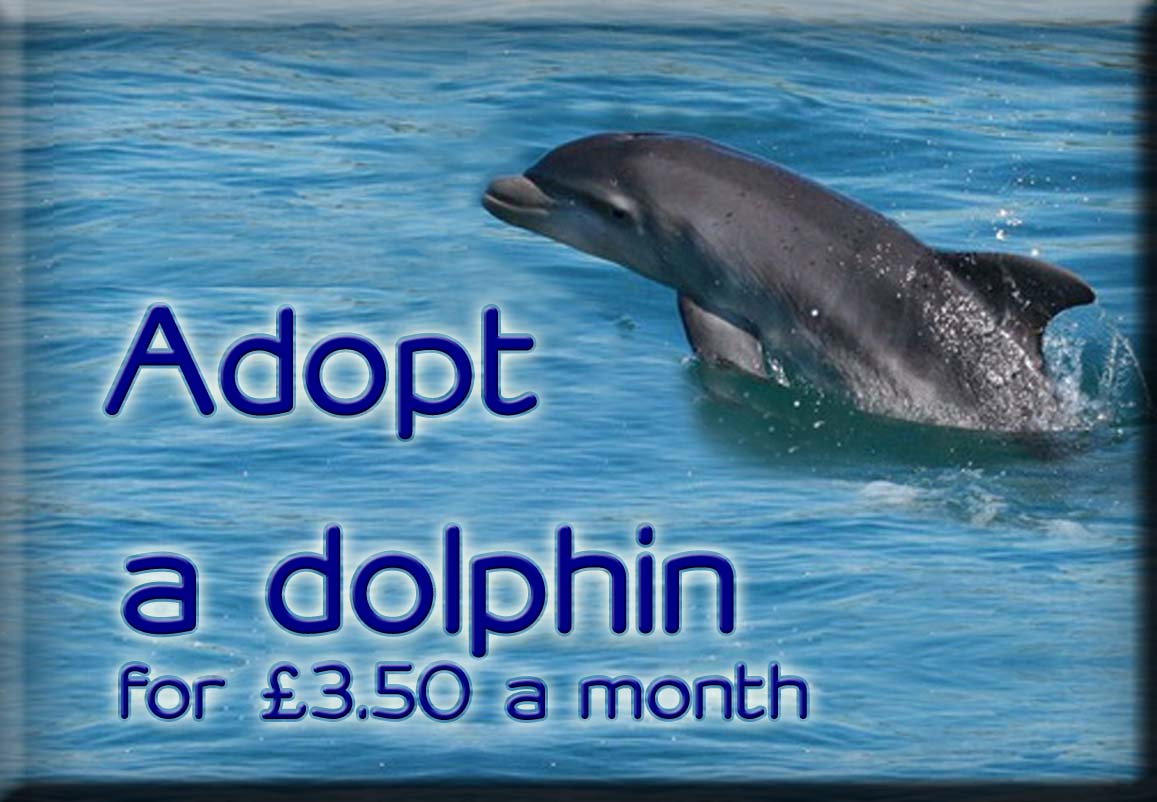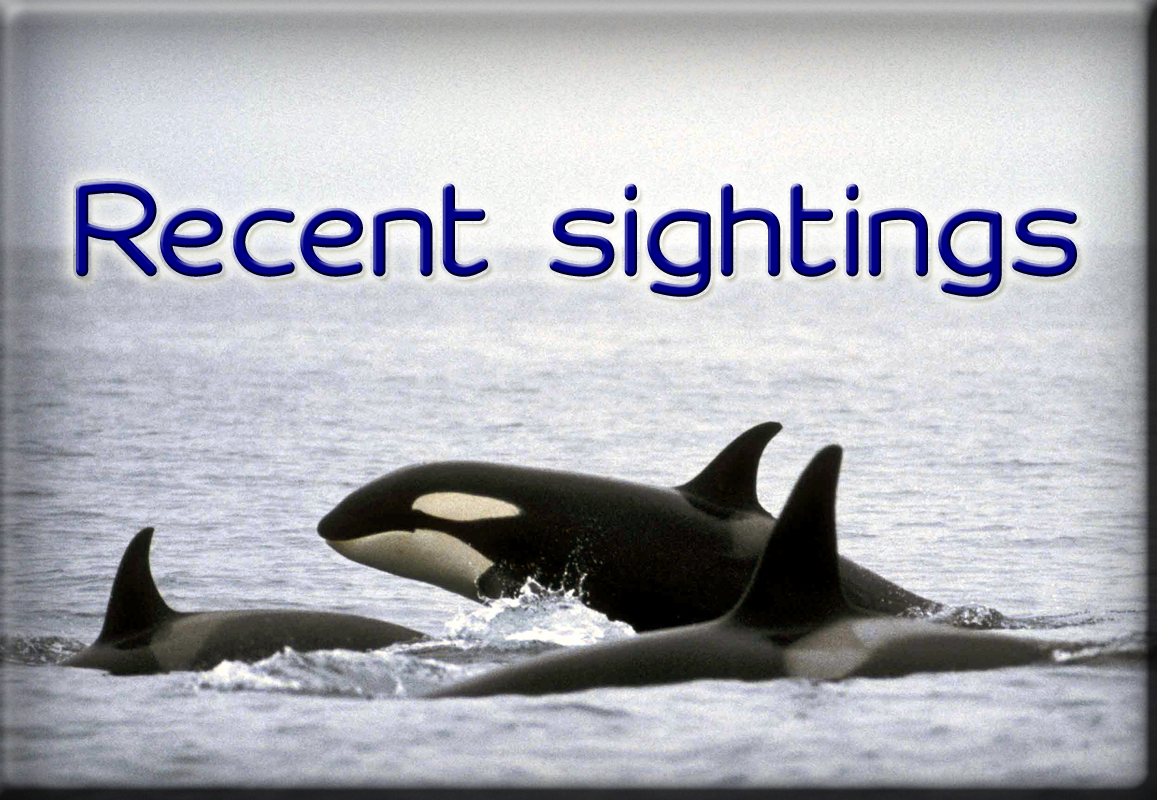It’s that time of year again – it’s seal pupping season in Cardigan Bay! Every year from late August our resident Atlantic grey seal population, estimated at about 5000 individuals in south west Wales, are joined by some new recruits. Females will select secluded beaches and quiet coves to nurse their pups who depend on her milk for the first 3 to 4 weeks of their life.
The first local pup of the season was reported last week and the Sea Watch team were delighted to get their first sighting during one of their daily surveys aboard a Dolphin Spotting Boat Trips boat. The young pup, covered in its thick layer of white fur, was resting with its mother on the rocky shores of a beach near New Quay Bay.
Just a few days later, another 3 pups were spotted on the same beach! One of the pups was thought to be just a few days old when Sea Watch interns visited the area to inform beachgoers of the new arrivals. These pups will spend most of their time on land, feeding on their mother’s fat rich milk and building thick layers of blubber whilst losing their white fur coats. Once they are fully weaned, the pups will have nearly doubled in body weight and will be ready to swim, forage and hunt independently.
The Sea Watch team will continue to assist the Cwmtydu seal watch team by visiting the beach and monitoring the pups to ensure they are not disturbed. We ask people to please keep their distance, give both the mothers and pups space and keep their dogs under control. New mothers are very territorial and can be aggressive when protecting their new pups so please do not approach the seals. Any human interaction with pups could confuse the mother and cause her to abandon her pup before it is weaned. However, mothers often leave their pups on the shore while they go to the sea to hunt so the sight of a temporarily lone seal pup should not raise any alarm. If you suspect a pup might be injured or abandoned please do not approach it, contact Milford Haven Seal Hospital (01646 692943 / 07970 285056) or the RSPCA hotline (0300 1234 999).
Written by Vicky Herbert, Research Intern, 2017


























